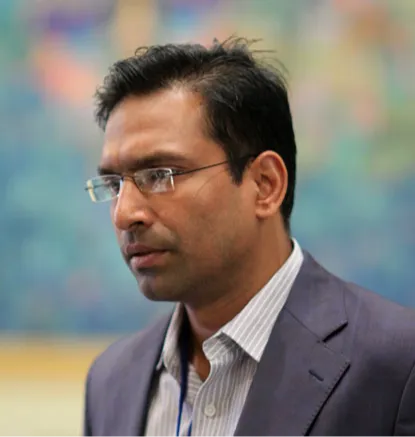
In a historic judgment, the Supreme Court bench has put all sedition cases in abeyance till the Union government reconsiders the colonial-era law. In the interim order, the bench comprising Chief Justice of India (CJI) NV Ramana, Justice Hima Kohli, and Justice Surya Kant directed the Union and State governments to refrain from registering any FIRs under Section 124-A of the Indian Penal Code. While this is an interim order and the final judgment may be different, nonetheless, the order is a watershed in the history of 162-year colonial law. Given the seriousness displayed by the current CJI to review the seditious provisions and the Union government’s surprise climb down to reconsider its original stand on the same, one may expect a decisive verdict on this in the future that ideally should have no place in a modern democracy.
Background
The law of sedition was enacted by the British government in 1860 to deal with any harsh criticisms of the colonial government and prevent any offences against the colonial state. The sedition law that is curbing the free speech and fundamental rights in post-independence India was extensively used against the freedom fighters. The key figures of the freedom movement such Bal Gangadhar Tilak, J.C. Bose, and M.K. Gandhi were imprisoned under this draconian law.
Given the seriousness displayed by the current CJI to review the seditious provisions and the Union government’s surprise climb down to reconsider its original stand on the same, one may expect a decisive verdict on this in the future that ideally should have no place in a modern democracy.
After India achieved freedom in 1947, the Constituent Assembly spent a considerable amount of time debating the relevance of the sedition law. After a rousing debate, the Constituent Assembly decided to omit the term sedition (while retaining Section 124-A of IPC) from the constitution. However, the controversial law was brought into force in the very controversial First Amendment passed by the government led by India’s first Prime Minister Jawaharlal Nehru. Not only did the Nehru government re-impose the sedition law, but at the same time, it strengthened the colonial law by adding two expressions - “friendly relations with a foreign state” and “public order” - as grounds for imposing “reasonable restrictions” on free speech under Article 19 (2). However, it was under the Indira Gandhi’s administration in 1973 that section 124-A became a cognizable offense under a new Code of Criminal Procedure. This empowered the police to arrest persons without issuing a warrant.
What makes the law a serious concern?
Ever since its re-enactment in 1951, the colonial law has remained a handy tool for the police and related state institutions to create fear amongst the citizens and suppress any legitimate criticisms or dissent against the governments. While all successive regimes have misused the law, it has reached the level of brazenness in recent years. A glance at the cases filed in recent years indicates the growing misuse of the law. According to the portal Article 14, two-dozen sedition cases were filed on key figures of the Citizenship Amendment Act (CAA) protests, 27 cases related to the Pulwama incident, and 22 cases related to the coverage of the Hathras gang-rape incident. Seditious acts range from simply showing placards to raising anti-government slogans and personal communications on social media. The most brazen misuse of section 124-A was when six prominent journalists including Rajdeep Sardesai, Mrinal Pande, and Shashi Tharoor, member of Parliament were booked for “posting tweets and purposefully circulating fake news” during the farmers’ protests in Delhi in 2021. A more bizarre instance of misuse of the provision was when three Kashmiri students were charged in Agra for allegedly sharing celebratory messages on social media after Pakistan’s victory over India in a T20 match.
According to the portal Article 14, two-dozen sedition cases were filed on key figures of the Citizenship Amendment Act (CAA) protests, 27 cases related to the Pulwama incident, and 22 cases related to the coverage of the Hathras gang-rape incident.
Successive governments (Centre as well as states) have followed up the draconian provision with even greater zeal. As per the data compiled by the National Crime Records Bureau, cases under section 124-A have witnessed a steep rise in recent years. For instance, 65 percent of nearly 11,000 individuals in 816 sedition cases since 2010 were implicated after 2014. Nearly 163 percent jump in cases between 2014 to 2020, while the conviction rate is as low as 3.3 percent. States including those ruled by the Opposition parties have not shown any restraint in applying the draconian provision. As per the NCRB data (2010-2020), 168 cases were filed by Bihar police, followed by Tamil Nadu (139), Uttar Pradesh (115), and Jharkhand (62), Karnataka (50), and Odisha (30).
Sedition laws are antithetical to democracy
The sedition laws were enacted by the British government under specific circumstances to protect and advance colonialism. Such laws should have no place in modern democracies governed by free speech and expression. Liberal democracy demands that every citizen is allowed to think, express, and organise “disaffection” against the government. Rather than being a crime, free expression is a virtue in any democratic polity. Putting a premium on this, most former British-ruled territories including the United States, Australia, and New Zealand have abolished the seditious provisions. Even the British government scrapped the seditious provisions under the Coroners and Justice Act in 2010.
As political polarisation and political distrust continue to grow in the country, in an increasing number of cases the said law has been weaponised by the governments as a handy tool against their political rivals, to suppress dissent and free speech.
Despite its widespread misuse by governments of all hues resulting in many innocent victims spending months and years in custody without getting court hearings, there have been no visible efforts either from any political dispensations or the judiciary to stop the ever-growing decay of Indian democracy. While the Supreme Court had delivered a decisive verdict in Kedar Nath in 1962, clearly stating that the sedition law was supposed to be applied in rare instances where the security and sovereignty of the country were threatened, this has little bearing on applications of sedition charges by state authorities particularly the police. As political polarisation and political distrust continue to grow in the country, in an increasing number of cases the said law has been weaponised by the governments as a handy tool against their political rivals, to suppress dissent and free speech. Several recent judgments by the Supreme Court and several high courts have vividly brought these aspects of misuse out to the public, albeit with little or no deterring effects on police and other state institutions.
However, the Union government’s last-minute U-turn from its earlier stand of supporting Section 124-A before the constitutional bench of the Supreme Court and the latter’s bold decision to put the colonial law in abeyance till the government reviews the controversial provision offers a glimmer of hope. While the abolition of sedition law is not enough to stem the rot in Indian democracy, it would create an opening for the review of other anti-democratic provisions. To conclude, as India is celebrating 75 years of its independence, under the banner “Azadi Ka Amrit Mahotsav”, it would be a historic opportunity to erase the dark chapter of the colonial rule.
The views expressed above belong to the author(s). ORF research and analyses now available on Telegram! Click here to access our curated content — blogs, longforms and interviews.




 PREV
PREV


